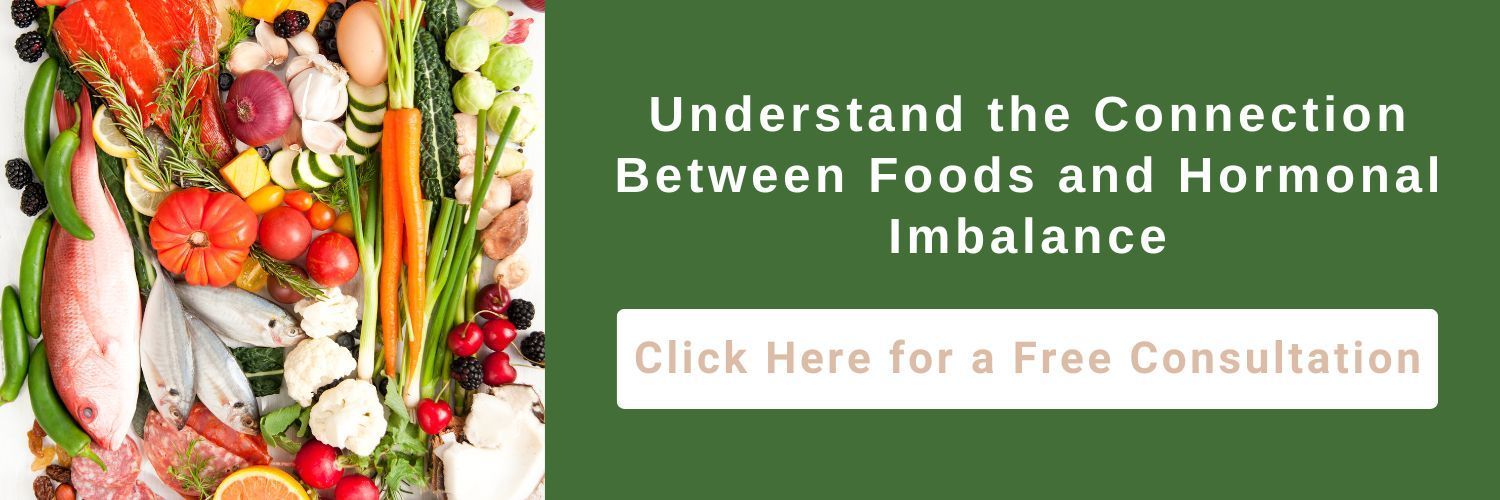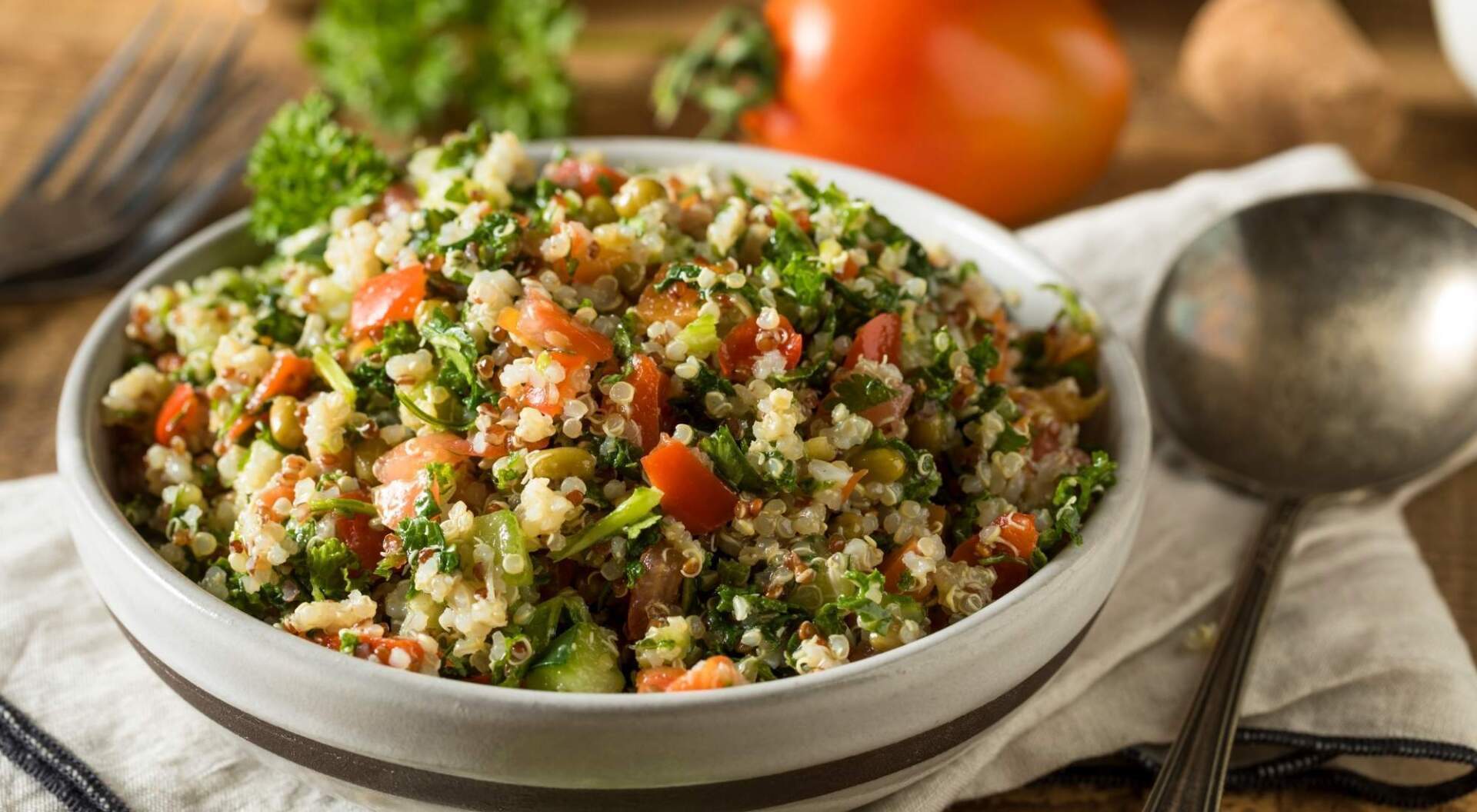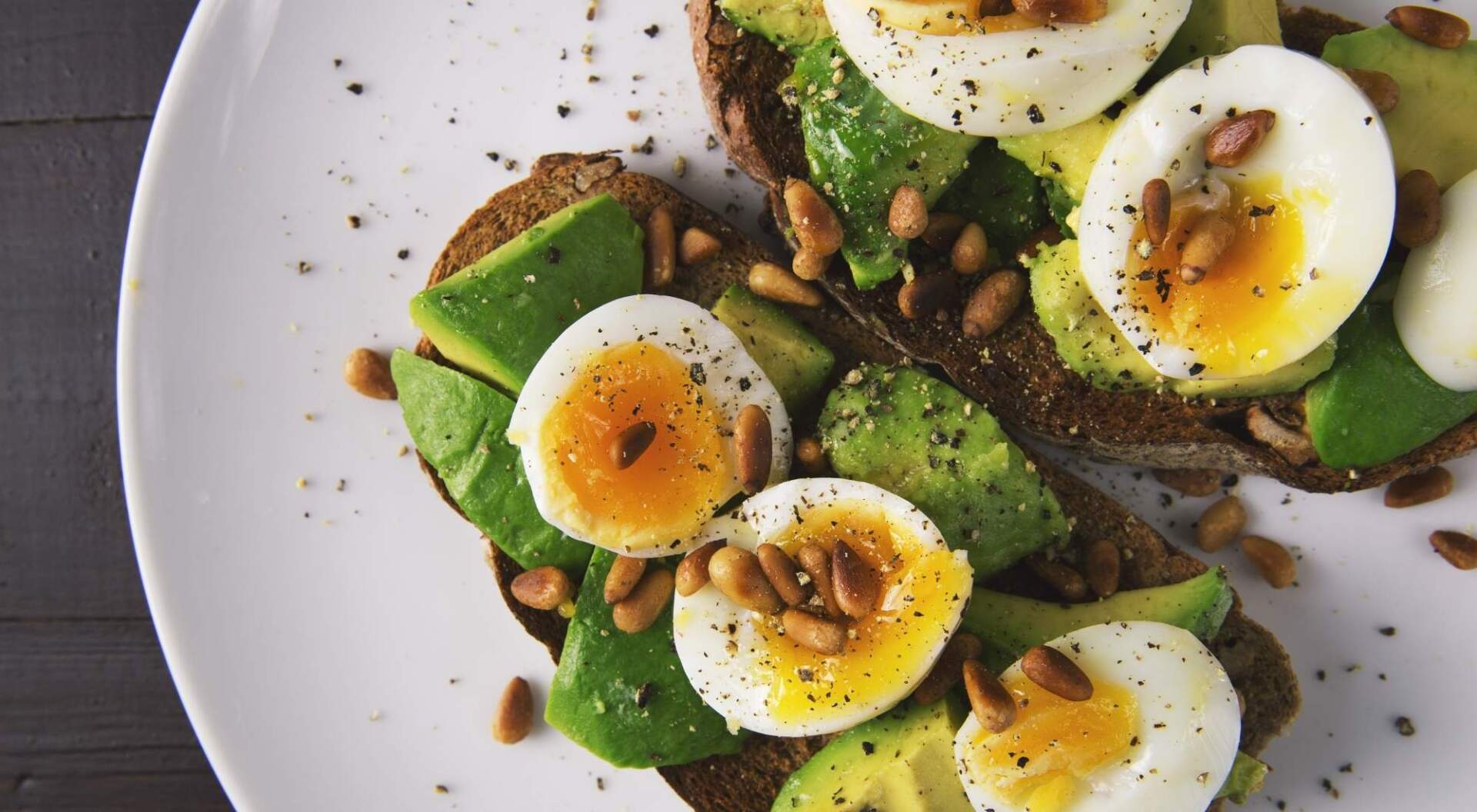The Best Foods for Hormonal Imbalance: Exploring Optimal Diet Choices
"The content below is not intended to be a substitute for professional medical advice, diagnosis, or treatment. Always seek the advice of your physician or other qualified health provider with any questions you may have regarding a medical condition."
Hormonal imbalances can be exhausting to live with. You’ve tried everything, yet it feels like nothing is truly helping ease the struggle. Having so many symptoms at once is overwhelming, and unfortunately, many women face this reality every single day. Maybe you’ve been prescribed medications to help, but you want to know if there is anything more you could be doing to balance your hormones and start feeling better.
The good news is that there are solutions. Nutrition plays a powerful role in hormone balance, and making the right dietary choices can help you feel more energized, stable, and in control of your health. No one wants to feel like their health is completely out of their control, and you can learn to manage your symptoms and take the right steps to address your hormonal imbalances.
In this guide, we’ll look at the connection between food and hormones, explore which foods support balance, and share how you can begin using nutrition to start feeling like yourself again.
Table of Contents
The Relationship Between Food and Hormonal Imbalances
Hormones are chemicals that are produced by your endocrine glands, and hormone imbalances may occur when there is too much or too little of a particular hormone in your bloodstream.
Despite popular belief that hormones only impact sexual and reproductive health, even the tiniest of imbalances can cause a multitude of side effects throughout your body.
Some of the worst foods for hormone imbalance contain ingredients such as:
- Preservatives
- Phytoestrogens
- Pesticides
- Growth hormones
- Plastic
Avoiding foods containing these ingredients may not be enough to eliminate hormonal imbalances. It’s also important to ensure you’re eating the best foods for a hormonal imbalance.
What Are the Best Foods To Eat for Hormonal Imbalance?
It’s natural to wonder what foods might help restore balance if you’ve been battling hormonal imbalances and experiencing symptoms such as:
- Fatigue
- Irregular cycles
- Hot flashes
- Stubborn weight gain
Nutrition can play a powerful role in supporting the endocrine system and easing symptoms. Generally, these foods are known to promote hormonal health:
- Foods rich in healthy fats
- Whole-food carbohydrates that stabilize blood sugar
- Certain vegetables that support detoxification and thyroid function
While these categories are a helpful starting point, everybody is unique — what works for one person may not work for another. At HealthierU in Brooklyn, holistic nutritionist Dr. Donna Sergi can help you take these foundations a step further by creating a personalized nutrition plan tailored to your symptoms, thyroid health, life stage, and daily routine.
7 Types of Foods That Can Help Combat Hormonal Imbalance
#1: Omega-3 Rich Foods
Omega-3s promote healthy cell-to-cell signaling, leading to:
- Improved hormonal communication
- Stronger cognition
- More stable mood
- Decreased production of stress hormone (cortisol)
The most common conditions that can benefit from a diet high in omega-3 essential fatty acids are:
- Menopause: Omega-3s provide the building blocks necessary for the production and function of hormones that help slow down inflammation and alleviate menopause symptoms.
- Thyroid Dysfunction: Omega-3s are effective in reducing inflammation and fighting against infection.
- Adrenal Deficiency: Omega-3s restore homeostasis by regulating the dysfunction of the HPA axis.
-
The best foods to help boost your omega-3 intake include:
- Salmon
- Sardines
- Albacore tuna
- Herring
- Lake trout
- Chia seeds
- Brussels sprouts
- Algal oil
- Hemp seed
- Walnuts
- Flaxseeds
- Perilla oil
#2: Eggs
Eggs are a staple in many kitchens, and they also happen to be packed with nutritional benefits, including hormonal support. With a variety of ways to enjoy this simple and delicious food, fitting eggs into your daily diet should be easy.
Eggs contain selenium, which is an antioxidant. Antioxidants remove free radicals that can cause damage and premature aging to the thyroid glands.
In addition to benefiting your endocrine system, eggs are also known to reduce the risk of certain cancers and boost the body’s metabolism.
#3: Healthy Carbs
To many, the word “carbohydrates” may set off alarm bells, but not all carbs are created equal.
Some carbohydrates are not only loaded with nutrients, but they also help regulate your blood sugar. These include:
- Oats
- Quinoa
- Buckwheat
- Wild rice; and
- Legumes
Healthy carbs are beneficial for hormonal imbalance because, without enough glucose, the body produces cortisol, creating a hormonal imbalance and negatively impacting the body at a cellular level.
Whole and unprocessed complex carbohydrates (like the ones listed above) take longer to digest and, as a result, they produce a lasting stream of glucose that supports healthy blood sugar levels.
#4: Healthy Fats
Many healthy fats come with a host of benefits, including boosting hormonal balance while also making you feel full longer.
Try adding these healthy fats to your daily diet to help achieve endocrine health:
- Avocados
- Coconut oil
- Olive oil
- Nuts and seeds
- MCT oil; and
- Ghee
Avoid eating foods with hydrogenated fats as one of the ingredients. These are trans-fats, and not only do they offer no nutritional value, but they are also detrimental to your health.
Eating healthy fats is especially important because low-fat diets decrease the production of estrogen and progesterone in the body.
All hormones are comprised of protein and fat, and sex hormones (estrogen and testosterone) are made from cholesterol. If you remove cholesterol from your diet, you slow the production of estrogen, which can lead to estrogen deficiency and these symptoms in women:
- Night sweats
- Insomnia
- Heart palpitations
Healthy fats are essential in the production and steady flow of hormones.
#5: Root Vegetables
It’s common to consider root vegetables as part of a hearty meal in the autumn or winter, but eating them year-round is extremely beneficial for keeping hormonal balance.
Try adding some of these root vegetables to your meals or snacks each day:
- Carrots
- Turnips
- Sweet potatoes
- Parsnips
- Radishes
- Garlic
- Rutabagas
- Beets; and
- Onions
Root vegetables are beneficial for hormonal issues because their fiber content helps balance blood sugar levels, thus balancing hormones.
Carrots, in particular, are great for preventing estrogen dominance, while sweet potatoes boost progesterone levels. Other root vegetables provide food for the healthy bacteria that live in your gut.
Incorporating root vegetables into your diet can be simple. Try adding:
- Parsnips and sweet potatoes for a soup
- Radishes to a salad; or
- Carrots with dip
However you choose to add root vegetables to your daily diet, you’ll begin to reap the hormonal benefits in no time
Why are Root Vegetables a Beneficial Food for Hormonal Imbalance?
The fiber in root vegetables helps balance blood sugar levels, thus balancing hormones.
Carrots, in particular, are great for preventing estrogen dominance, while sweet potatoes boost progesterone levels. Other root vegetables provide food for the healthy bacteria that live in your gut.
Incorporating root vegetables into your diet is simple. Try adding:
- Parsnips and sweet potatoes to a soup
- Radishes to a salad; or
- Eating carrots with dip
However you choose to add root vegetables to your daily diet, you’ll begin to reap the hormonal benefits in no time.
#6: Leafy Greens
There’s more to leafy greens than just salads. If finding a way to prepare them is your main issue, these are our suggestions for ways to prepare a delicious and healthy meal with leafy greens:
- Saute
- Roast
- Stir fry
- Add to omelets
- Stir into soups; or
- Top a sandwich
No matter how you decide to get your daily greens, you can take comfort in knowing that you’re ridding your body of harmful estrogens with crucifers like:
- Broccoli
- Bok choy
- Kale
- Cabbage
- Collard greens
- Cauliflower
- Brussel sprouts
- Arugula
- And more
Leafy greens play a key role in tailored nutritional programs treating hormonal symptoms because leafy greens are rich in a ton of micronutrients and are also loaded with healing vitamins, such as:
- Vitamin K
- Vitamin A
- B Vitamins; and
- Trace minerals
Leafy greens are not just highly nutritious; they also help excrete excess toxins and hormones from your body. Add some greens to your plate today.
#7: Fruits
Fruits can cause insulin levels to spike, which can affect cortisol and estrogen levels, so they should be eaten regularly but in moderation.
When fruits are consumed in the right amounts, they can positively affect hormone levels.
Have a look at these three fruits to learn how they not only rank as good food for hormonal imbalance in women but also provide a host of other benefits.
Apples
We’ve all heard the saying, “An apple a day keeps the doctor away”, but is there any truth to that?
We think so.
Apples can be eaten on the fly, chopped up and baked with cinnamon for a sweet, but healthy, snack, or added to salads and other recipes.
Not only are they versatile, but they’re beneficial to your hormonal health.
Why are apples a beneficial food for hormonal imbalance?
They’re packed with vitamin C, which is essential in the production of progesterone, the hormone responsible for reducing depression and anxiety.
Not only that, but
apples are host to a powerful antioxidant called
quercetin, which can assist in increasing the antioxidant capacity of the ovaries.
Blueberries
Blueberries are delicious, nutritious, and can be eaten daily as part of a healthy and balanced diet.
This tiny berry is making waves as one of the most recommended superfoods out there, and for good reason.
Why are blueberries a beneficial food for hormonal imbalance?
They may be small, but these little berries came to fight for your health.
Packed with flavonoids and antioxidants, blueberries are also high in vitamin C and potassium, making them a top fighter against inflammation, cancer, and heart disease.
These superfruits can also create a huge impact on your hormonal health. They’re loaded with vitamin B6, which assists in the production and balancing of progesterone.
Strawberries
Strawberries are a delicious summer treat that can be enjoyed year-round. They can be added to your…
- Cereal
- Oatmeal
- Smoothie
- Protein bowl; and even
- Salads
Not only are they delicious, but they are also a winner in the fight against hormonal imbalances.
Balance Your Hormones with a Personalized Nutrition Plan at HealthierU
Finding the right foods for hormonal imbalance is a powerful first step, but lasting results often require more than general diet advice. Your body is unique — what works for one person may not bring the same results for another, especially when dealing with conditions like hypothyroidism or Hashimoto’s disease. That’s where a personalized approach can make all the difference.
At HealthierU in Brooklyn, NY, holistic nutritionist Dr. Donna Sergi works to uncover the root causes of hormonal symptoms and design nutrition plans tailored to the patient’s specific needs. Dr. Sergi’s holistic guidance can help you restore balance, increase energy, and feel like yourself again, whether you’re struggling with:
- Fatigue
- Weight gain
- Irregular cycles
- Thyroid-related issues
- And more
You don’t have to navigate hormonal imbalance on your own — support is available, and healing is possible. Request a nutrition consultation today and take the first step toward balanced hormones and better health with HealthierU.






